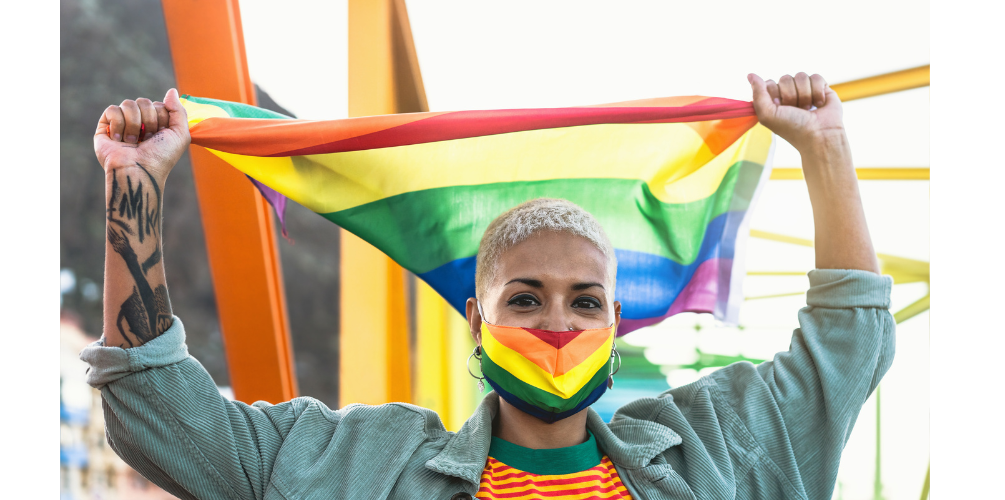
In the days leading up to the 2023 local elections in Colombia, it is crucial to reflect on the importance of increasing the political representation and participation of the LGBTQ+ community, which is constantly subjected to discrimination and physical, digital, and psychological violence. According to statistics from Luminate’s partner Caribe Afirmativo, in 2022, there were 145 homicides and 105 cases of police violence against LGBTQ+ people – an alarming figure that needs to be thoroughly examined to develop policies aimed at protecting this community.
While the participation of LGBTQ+ people in elected positions remains low, a survey released in June 2023 by Luminate and conducted by the Ipsos Institute reveals that a majority of those surveyed in Colombia (51%) support greater LGBTQ+ political representation, demonstrating support from the Colombian electorate for making the structural changes needed for LGBTQ+ people’s inclusion in politics.
If we compare the elections of 2019 to 2023, there is an increase in the number of LGBTQ+ individuals running for elected office. In fact, according to Caribe Afirmativo, there are currently 100 LGBTQ+ candidacies, representing a 32% increase compared to the elections four years ago.
In this context, and in the face of opportunity presented by this Sunday’s elections, what can we do to further advance the participation of LGBTQ+ Colombians in elected office?
Importantly, Colombian society is having central discussions about overcoming structural inequalities. Therefore, it is essential to understand the urgency and value of having LGBTQ+ individuals in political spaces, as their participation helps ensure more rights for this community. Their political involvement adds diverse and valuable perspectives to discussions of paramount importance for society, such as in healthcare, education, and the economy.
Looking ahead to future elections in Colombia, it is crucial for political parties to engage and support the growth of LGBTQ+ candidacies: they have the responsibility to ensure their platforms are inclusive of this community. Political parties should also provide the necessary tools and resources for LGBTQ+ people to run and present their proposals without any limitations or harms to their integrity. We should be able to field LGBTQ+ candidates in elections, from local councils to the Presidency.
In Luminate’s survey released in June, the Colombian electorate (42%) identified the lack of support from political parties as the most significant barrier to greater LGBTQ+ political representation, compared to countries like Argentina, Brazil, and Mexico.
Furthermore, the Colombian electorate expressed the most support for the adoption of LGBTQ+ quotas for political parties, with 48% declaring themselves fully or partially in favor. This finding recognises the importance of establishing specific seats for LGBTQ+ people in Congress, as has been done for racial and ethnic minorities who have been historically excluded and underrepresented.
At the executive level, there is already progress in this regard – such as the announcement of the creation of the Ministry of Diversities. One of its main responsibilities will be to promote LGBTQ+ equality and create a national public policy supporting LGBTQ+ people. However, it is very important that the Ministry has the necessary resources to engage with the community across the entire country, and to design and promote public policies that protect LGBTQ+ people’s rights and ensure their participation in democracy.
In the legislative branch, steps have already been taken to ensure greater LGBTQ+ inclusion – such as Ley Integral Trans, a bill collaboratively designed by over 100 organisations from across the country. If Congress were to debate and approve this bill, it would set a historic precedent in the protection of one of the most vulnerable communities in Colombia.
Lastly, it is imperative that progress is made to ensure social media platforms like Facebook, Twitter, TikTok, and YouTube fulfill their responsibilities to democratic processes and set the conditions for public debates free from disinformation, hate speech and violence against LGBTQ+ people, women, Afrodescendants, and indigenous people who run for office.
A truly representative democracy is one in which all individuals, regardless of their gender, race, identity, or sexual orientation, have the conditions to actively participate in building a more just and inclusive society for everyone. Fortunately, Colombian society is are showing signs that they believe in and demand this transformation.
Originally published in Publimetro Colombia on 24 October 2023.